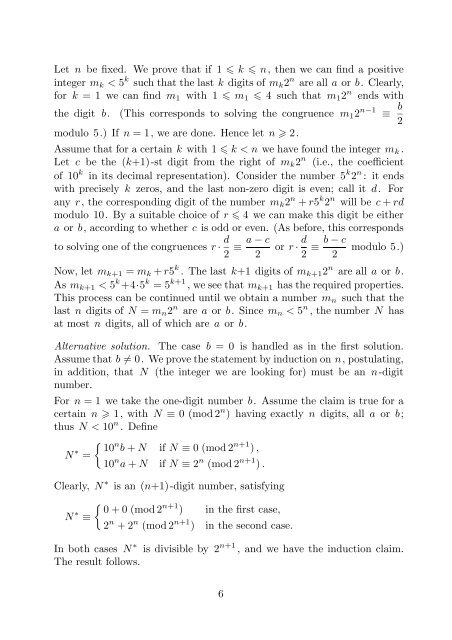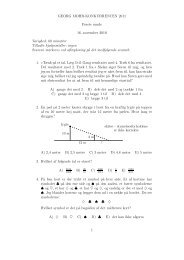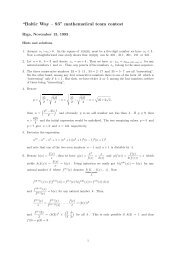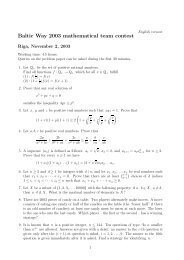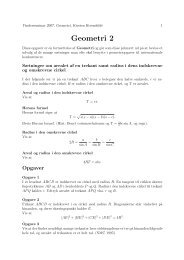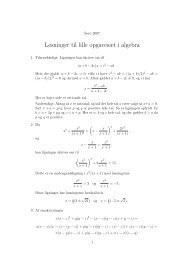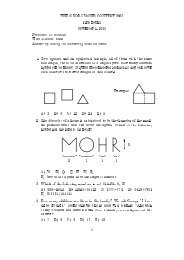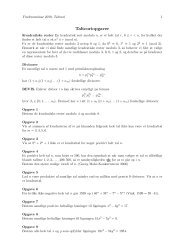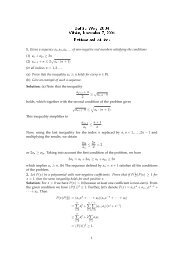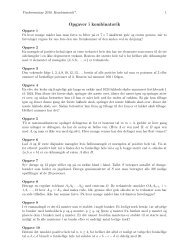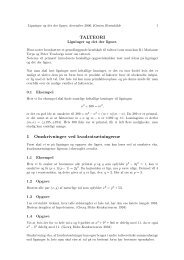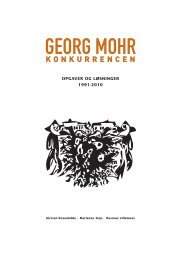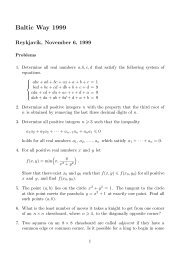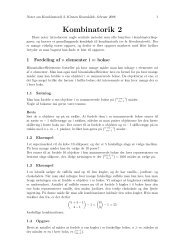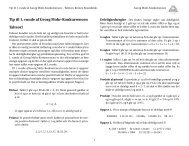You also want an ePaper? Increase the reach of your titles
YUMPU automatically turns print PDFs into web optimized ePapers that Google loves.
Let n be fixed. We prove that if 1 � k � n, then we can find a positive<br />
integer mk < 5 k such that the last k digits of mk2 n are all a or b. Clearly,<br />
for k = 1 we can find m1 with 1 � m1 � 4 such that m12 n ends with<br />
the digit b. (This corresponds to solving the congruence m12 n−1 ≡ b<br />
2<br />
modulo 5.) If n = 1, we are done. Hence let n � 2.<br />
Assume that for a certain k with 1 � k < n we have found the integer mk .<br />
Let c be the (k+1)-st digit from the right of mk2 n (i.e., the coefficient<br />
of 10 k in its decimal representation). Consider the number 5 k 2 n : it ends<br />
with precisely k zeros, and the last non-zero digit is even; call it d. For<br />
any r , the corresponding digit of the number mk2 n + r5 k 2 n will be c + rd<br />
modulo 10. By a suitable choice of r � 4 we can make this digit be either<br />
a or b, according to whether c is odd or even. (As before, this corresponds<br />
to solving one of the congruences r · d a − c<br />
≡<br />
2 2<br />
or r · d b − c<br />
≡<br />
2 2<br />
modulo 5.)<br />
Now, let mk+1 = mk + r5 k . The last k+1 digits of mk+12 n are all a or b.<br />
As mk+1 < 5 k +4·5 k = 5 k+1 , we see that mk+1 has the required properties.<br />
This process can be continued until we obtain a number mn such that the<br />
last n digits of N = mn2 n are a or b. Since mn < 5 n , the number N has<br />
at most n digits, all of which are a or b.<br />
Alternative solution. The case b = 0 is handled as in the first solution.<br />
Assume that b �= 0. We prove the statement by induction on n, postulating,<br />
in addition, that N (the integer we are looking for) must be an n-digit<br />
number.<br />
For n = 1 we take the one-digit number b. Assume the claim is true for a<br />
certain n � 1, with N ≡ 0 (mod 2 n ) having exactly n digits, all a or b;<br />
thus N < 10 n . Define<br />
N ∗ � n n+1<br />
10 b + N if N ≡ 0 (mod 2 ) ,<br />
=<br />
10 n a + N if N ≡ 2 n (mod 2 n+1 ) .<br />
Clearly, N ∗ is an (n+1)-digit number, satisfying<br />
N ∗ � n+1<br />
0 + 0 (mod 2 ) in the first case,<br />
≡<br />
2 n + 2 n (mod 2 n+1 ) in the second case.<br />
In both cases N ∗ is divisible by 2 n+1 , and we have the induction claim.<br />
The result follows.<br />
6


